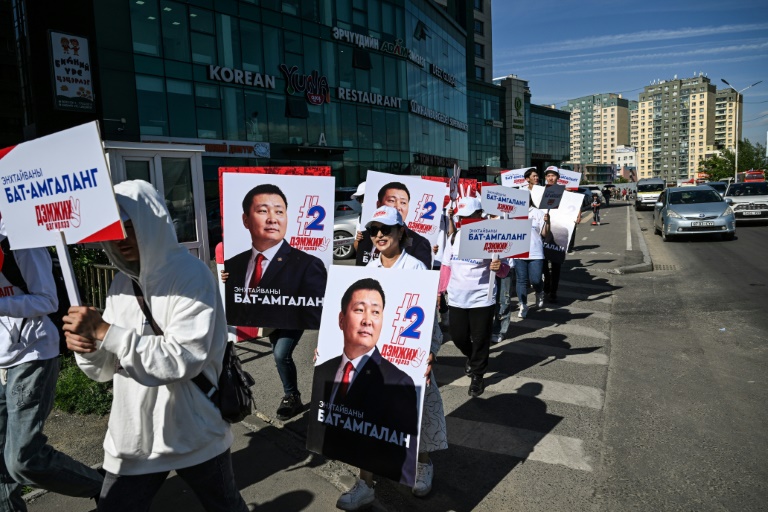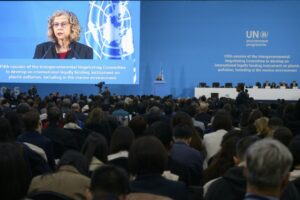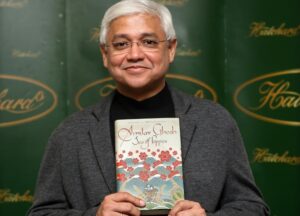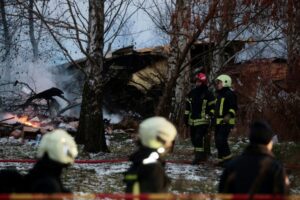Mongolians to vote in poll dominated by corruption worries

Mongolians go to the polls Friday to elect the 126 members of the State Great Khural – Copyright AFP Hector RETAMAL
Oliver Hotham and Khaliun Bayartsogt
Mongolians go to the polls Friday in parliamentary elections, with the ruling party expected to hold its majority despite voter fatigue over corruption and concern about inflation and the state of the economy.
People across the vast, sparsely-populated nation of 3.4 million will elect 126 members of the State Great Khural, a democratic exercise in a country surrounded by authoritarian powers China and Russia.
Streets across the capital Ulaanbaatar are decked out with vibrant multi-coloured posters advertising candidates from across the political spectrum, from pro-market liberals to hardline nationalists, populist businessmen and environmentalists.
Analysts widely expect the ruling Mongolian People’s Party — led by Prime Minister Luvsannamsrain Oyun-Erdene — to retain the majority it has enjoyed since 2016, allowing it to govern the resource-rich country for the next four years.
It can credit much of its success to a boom in coal mining that fuelled double digit growth and dramatically improved standards of living, analysts say.
But that belies deep frustrations with the state of the economy, battered by two years of double-digit inflation — still stubbornly high at seven percent — as well as what is seen as widespread corruption.
On Sunday, as loudspeakers blared out from a packed ruling party rally in downtown Ulaanbaatar’s National Park, retired miner Tumurkhuyag Bayanmunkh, 46, complained that the politicians were “all the same”.
“The parliament is full of wealthy people who promise changes and improvements, but they forget us the next day,” Bayanmunkh told AFP as his grandchildren played nearby.
“I worked in the mine for 25, 26 years but I can’t afford anything,” he explained.
“A few elites benefit from the (mining) sector, not the ordinary people.”
– ‘Coal theft’ –
The ruling party has promised to crack down on corruption since unrest in late 2022, when hundreds took to the streets of Ulaanbaatar to protest against “coal theft” by officials linked to state coal firms.
But under its rule, Mongolia has plummeted in Transparency International’s Corruption Perceptions Index.
“The middle class is shrinking, real incomes are stagnating, and people very much feel like they’re not getting the benefits of the mining wealth that is coming to this country,” Munkhnaran Bayarlkhagva, an analyst and former adviser on the National Security Council of Mongolia, told AFP.
The ruling party has also presided over a plummeting in press freedom rankings as well as notable declines in the rule of law, campaigners say.
The arrest and trial of high profile journalist Naran Unurtsetseg sent ripples through Ulaanbaatar’s relatively small community of journalists, compounding fears over a growing crackdown on freedom of speech.
According to the Confederation of Mongolian Journalists, the country’s main press NGO, 20 journalists are now under some kind of formal investigation for their reporting.
And a survey by the Sant Maral Foundation — Mongolia’s top independent polling body — suggested more than a third of Mongolians now believe the country is “changing into a dictatorship”.
– ‘Young people are undervalued’ –
Sunday’s rally was largely attended by older Ulaanbaatar residents, illustrating a stark generational divide in a country with an overwhelming young population, with an average age of 26 and where almost two thirds are under 35.
Twenty-six year old IT worker Norovbanzad Ganbat told AFP she was unimpressed by the choices on offer.
“Young people don’t vote for (the MPP),” she said.
Many people her age are giving up on Mongolia altogether, choosing to go to South Korea or the United States in search of a better life, Ganbat said.
“I don’t want that. I want to live and work happily in my country. I want young people to be valued more,” she said.
“Young people are undervalued — after we complete higher education, our degree, knowledge and talent is undervalued. The average salary is too low,” she told AFP.
The successor to the Communist party that ruled Mongolia with an iron grip for almost 70 years, the MPP remains popular, particularly among rural, older voters, and commands a sprawling campaigning apparatus across the sparsely-populated country.
It has benefited from a divided opposition Democratic Party, whose pro-market policies in the last decade remain widely blamed for the country’s grinding income inequality.
Julian Dierkes, a professor at the University of British Columbia and an expert on Mongolian politics, told AFP the MPP could also tout its recent record.
“They made it through Covid pretty well, the economy is doing well right now off of coal exports and copper prices,” he said.
And at Sunday’s ruling party rally, retired journalist Namdag Sharav, 79, told AFP he was “very happy” with the government, which he said had raised his pension by $80.
“The current government has already started important work and they should be allowed to finish what they started,” he said.
Mongolians to vote in poll dominated by corruption worries
#Mongolians #vote #poll #dominated #corruption #worries





